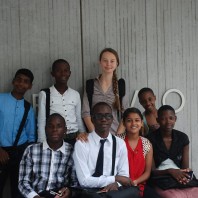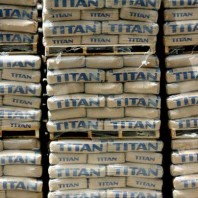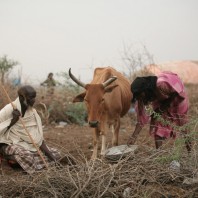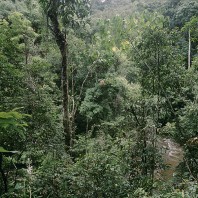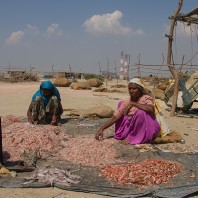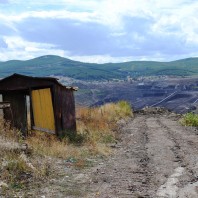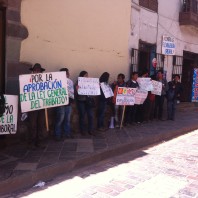From July 6th through July 10th, the Bank Information Center hosted a delegation of nine children from India, Uganda and Albania. The children were invited to DC to share some of their recommendations on the World Bank’s proposed safeguards policies, which protect communities and the environment from potential harm caused by World Bank projects and programs.
Civil society organizations in Egypt have submitted a parallel Country Partnership Framework (CPF) to the World Bank office in Cairo detailing what they envision should be the strategic priorities for World Bank-financed development projects in Egypt. In addition, the groups also submitted specific comments and proposed amendments to the current CPF draft.
Children’s Consultations Round 2: In the second round of consultations, children were asked to delve a little deeper into the safeguards as they reviewed the first draft of the Bank’s proposed new Environmental and Social Framework.
Egyptian rights groups, community members, and laborers impacted by a hazardous cement plant financed by the International Finance Corporation (IFC) filed a complaint on April 8, 2015 with the body’s independent grievance mechanism. The grievance mechanism, called the Compliance Advisor Ombudsman, or CAO, has now deemed the complaint eligible to move through the grievance process. …
Egypt and Morocco are the two largest recipients of World Bank lending in the Middle East and North Africa region and as such it was appropriate and important that the Bank held consultations in those two countries as part of a series of global consultations around the Bank’s draft of its proposed Environmental and Social …
The World Bank’s action plan responding to an internal review on the bank’s resettlement practices does not address the serious failings the review found, 85 non-governmental organizations and independent experts from 37 countries said today in a letter to the World Bank president, Jim Yong Kim.
A submission from 20 civil society organizations from Africa, Asia, Latin America, Europe and the United States, underscores civil society concerns about the unprecedented dilution of World Bank safeguards for biodiversity, forests and resource-dependent communities.
A group of Nobel Peace Prize winning women (The Nobel Women’s Initiative) sent a scathing letter to World Bank President Kim detailing concerns they have with Safeguards draft.
The World Bank seems eager to provide financial support to the Kosovar government for construction of a new coal-based power plant. But what about the people who are in the path of the expanded power plant and coal mine? Kosovo and the World Bank are trying to avoid responsibility for the impoverishment and suffering that will surely come on the heels of the involuntary resettlement of over 7,000 Kosovars from their homes and communities.
Like previous safeguard consultations, Lima was draped in a sense of secrecy with a total lack of transparency from the get go. The response of civil society groups in Lima to the draft safeguard policies presented by the Bank was very straight-forward, outright rejection.

